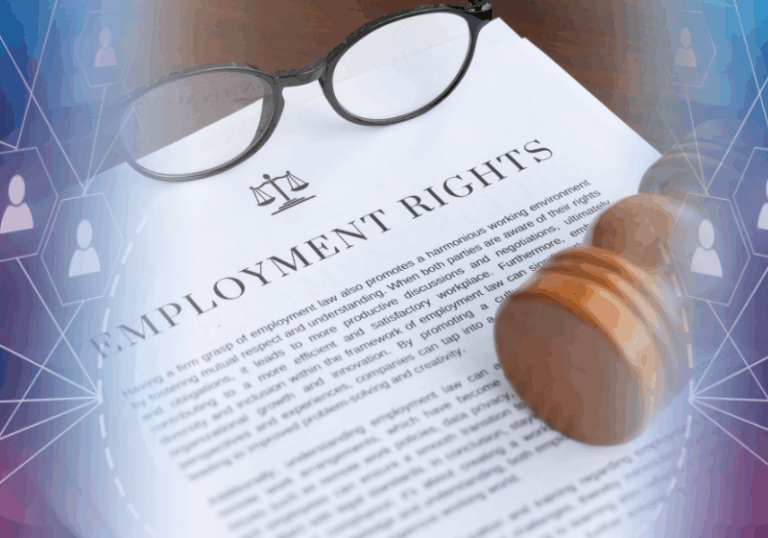Neurodiversity at work: why adjustments can’t wait for a diagnosis.

Imagine an employee comes to you and says they think they might be dyslexic, autistic or have ADHD but they don’t yet have a diagnosis or perhaps you suspect that they are neurodivergent based on their behaviours. Do you wait for official confirmation before stepping in, or should you act straight away? It’s a dilemma many employers face and one that could have serious legal and practical consequences if handled incorrectly.
To explore this question in more detail, I sat down with one of our expert HR advisors, Julie, for a conversation about what the law says, what good HR practice looks like and how employers can approach these situations with confidence.
Let’s start with the basics. What do we mean when we talk about neurodiversity?
Julie: Neurodiversity is the term used to describe the natural differences in how peoples’ brains function and process information. Being neurodivergent simply means that someone’s brain works in a way that differs from what society often views as “typical.” Conditions that fall under this umbrella include autism, ADHD, dyslexia and dyspraxia but also others. It’s important to remember that these conditions affect people in very different ways, for example, one employee with ADHD might be extremely creative and thrive under pressure but find it difficult to stay focused during long meetings and another with the same condition might struggle with time management or following complex written instructions. The key is to recognize that every neurodivergent person’s experience is unique.
Employers may sometimes get prickly if there isn’t a formal diagnosis; do you have any insights into why this might be the case?
Julie: There are several reasons. The most obvious is that NHS waiting lists for assessments can be incredibly long, sometimes stretching over years. That delay alone can prevent people from getting a diagnosis even if they want one. But equally, some employees might not feel a formal diagnosis is necessary. The employee may have developed coping strategies throughout their life and never felt the need for an assessment. Others may avoid it due to stigma, worrying that a label could lead to judgement from colleagues or managers. Therefore when an employee says “I think I may be dyslexic” or “I’m waiting for an autism assessment” it’s really important that employers don’t dismiss their concerns just because there isn’t a piece of paper to prove it.
From an employer’s perspective, does it matter if there’s no diagnosis?
Julie: From an employment law perspective, no it doesn’t. The Equality Act 2010 sets out that it’s about the impact on the person not whether there’s a medical label. A person is considered disabled if they have a physical or mental impairment that has or may have a substantial and long-term adverse effect on their ability to carry out normal day-to-day activities. For instance, if an employee finds it overwhelming to process lots of instructions at once or struggles with social interaction in a way that makes team collaboration difficult, the effect is what counts, not whether they have a formal diagnosis. This means that if an employee is showing signs of struggling and tells you about it, you should treat it seriously and not assume that you are off the hook until a doctor confirms it.
Does that mean employers still have to make adjustments even without a diagnosis?
Julie: Yes, that’s exactly right. The legal duty to consider reasonable adjustments arises when an employee is disadvantaged because of a disability as defined by the Equality Act. That definition does not require a medical diagnosis. If an employee is experiencing difficulties at work that are linked to being neurodivergent, the duty of care is already there. For example, if an employee tells you they struggle to keep up in fast-paced verbal meetings and asks for written notes afterwards, it would not be acceptable to say “We’ll only do that once you’ve been formally diagnosed with dyslexia.” The obligation is to consider the request now.
What do reasonable adjustments look like in practice?
Julie: Adjustments can be very simple and don’t always involve cost. Let’s take an example: an autistic employee may find open-plan office noise distracting and overwhelming. A reasonable adjustment might be to provide them with noise-cancelling headphones or agree that they can work in a quieter part of the office. Another employee who is dyslexic might find it difficult to process long written instructions. A practical adjustment there could be for their manager to explain tasks verbally and then confirm the key points in a short written summary. These kinds of changes can make a huge difference and cost very little, but they allow the employee to perform at their best.
This is all very interesting, but can you share a practical scenario where this has played out?
Julie: Certainly. I worked with a business where a new employee mentioned early on that they suspected they had ADHD but were still on the NHS waiting list for a formal assessment. They explained that they found it difficult to concentrate when juggling multiple tasks at once. Rather than waiting for a diagnosis, the manager agreed to trial a couple of adjustments. They started by breaking down projects into smaller tasks with clear deadlines, and they held short weekly check-ins instead of relying on long monthly reviews. The business also agreed to provide a simple project management app to help the employee organise their workload. Within weeks, the employee’s performance improved, and the manager commented on how much value they were adding to the team. No diagnosis was needed to see the benefit — just some openness and flexibility.
How do employers know if an adjustment is “reasonable”?
Julie: The word “reasonable” often worries employers because it sounds vague, but there is guidance. When tribunals look at reasonableness, they consider things like how effective the adjustment would be, whether it is practical to implement, what it would cost and the size and resources of the business. For example, a small café with only a handful of employees might not be expected to redesign its entire layout for one person, but allowing flexible start times or providing clear written rotas would almost certainly be reasonable. On the other hand, a large corporate organisation with bigger resources might reasonably be expected to invest in specialist software if that is what an employee needs to carry out their role effectively.
Do employers need medical evidence before making changes?
Julie: Not necessarily. If an employee comes to you and says “I’m really struggling to concentrate in team meetings, could I have the agenda in advance?” then the sensible approach is to accommodate that request where you can. You don’t need a doctor’s note to agree something that simple. Medical or occupational health reports can be useful where the situation is more complex, for instance if you are unsure what adjustments might help or if you need independent confirmation of how the condition affects the employee. But you should never use the absence of a medical report as an excuse to do nothing.
How important is communication in managing neurodiversity at work?
Julie: It’s absolutely critical. You can’t possibly know what will help unless you ask. Creating a safe environment where employees feel they can speak up is half the battle. For instance, if a manager says to their team “If there’s ever anything that makes your job harder, please tell me so we can look at solutions together” that sends a powerful message. Employees may feel nervous about asking for adjustments, especially without a diagnosis, so the manager’s response needs to be supportive and open. Even trying an adjustment on a trial basis can build trust and show the employee that you care and you are taking them seriously.
What are the risks if employers delay or ignore adjustments?
Julie: There are two main risks. The first is legal: if you fail to make reasonable adjustments, you could face a claim for disability discrimination which can be very costly. The second is practical: failing to support employees could damage engagement, morale and retention. I’ve seen cases where employees who could have thrived with a small change instead became stressed and disengaged, eventually leaving the business altogether. That is a real loss of talent and often completely avoidable.
If an employer is unsure what to do, where should they start?
Julie: Start with a conversation. Ask the employee what they find difficult and what might help. Try adjustments where possible, review them and keep a record of what you have considered. If you’re really stuck, Occupational Health or Access to Work can provide advice and practical support. The important thing is not to wait until everything is formally confirmed; acting early shows that you are taking your responsibilities seriously and that you value the employee’s contribution.
One Final Thought – What would you say the Key Takeaway should be?
Julie: The clear message here is that you do not need to wait for a formal diagnosis before taking action. What matters is how the employee is affected in their day-to-day work, not whether a doctor has given it a name. Early conversations, simple changes and a willingness to be flexible not only fulfil your legal duty but also demonstrate good management and a strong, positive workplace culture. Supporting neurodivergent employees isn’t just about compliance it’s about helping people to thrive and unlocking their full potential at work.
At HR:4UK, we understand that navigating neurodiversity in the workplace can feel complex, especially when you are balancing legal obligations with the day-to-day realities of running a business.
Our team of expert advisors can support you in having those sensitive conversations with employees, guide you on what “reasonable” adjustments might look like in your context, and help you document your approach so that you stay compliant with the Equality Act 2010.
Whether it’s updating policies, training managers to handle these discussions confidently, or providing one-to-one advice on specific cases, we’re here to give you practical, tailored support that protects your business and helps your people thrive.
Get in touch with HR:4UK today to find out how we can help you create a supportive, legally compliant, and thriving workplace for every employee.
Julie Spence
Julie is one of our full-time HR advisors with 30+ years of HR experience. She’s always keen to meet clients and really enjoys the personal touch.




